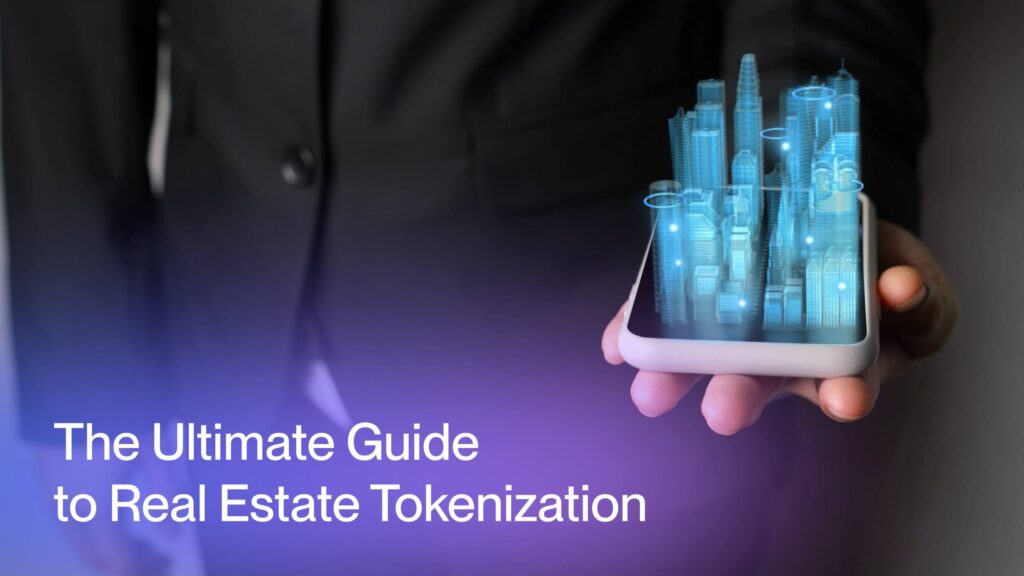Real estate has long been considered one of the most stable and profitable forms of investment. From residential housing to commercial developments, property ownership has created wealth and provided stability for generations. Yet, despite its appeal, traditional real estate investing has always had barriers that prevent widespread participation. High capital requirements, lengthy legal processes, and limited liquidity often make property markets difficult to access for the average investor. With the advancement of digital technologies, especially blockchain, a new approach is emerging that is revolutionizing how properties are owned, traded, and managed.
Understanding the Concept
Real Estate Tokenization refers to the process of converting ownership rights of a property into digital tokens stored securely on a blockchain. Each token represents a share of the underlying asset, allowing investors to buy fractions rather than entire properties. By doing so, tokenization lowers entry barriers and makes high-value properties accessible to a wider pool of participants. Blockchain technology ensures that ownership records are transparent, immutable, and resistant to fraud, providing a secure environment for both investors and property owners.
How Tokenization Works
The tokenization process begins with identifying a property to be digitized. A legal framework is established to define the rights tied to each token, which may include profit-sharing, voting rights, or rental income distribution. Smart contracts are then created on a blockchain platform to manage token issuance and transactions. These contracts automate tasks like transferring ownership, distributing profits, or enforcing compliance requirements. Once tokens are issued, they can be traded on digital marketplaces, providing liquidity to an asset class that has traditionally been difficult to sell quickly.
Benefits for Investors
Investors benefit significantly from tokenization. Liquidity is one of the key advantages, as tokens can be bought and sold far more easily than traditional property shares. Fractional ownership allows individuals with smaller amounts of capital to invest in premium properties that would otherwise be unattainable. Transparency is also enhanced because blockchain technology ensures that all transactions and ownership records are permanently stored and verifiable. Moreover, tokenized markets provide global access, enabling investors from around the world to participate without the usual challenges of cross-border property ownership.
Advantages for Property Owners and Developers
For property owners and developers, tokenization offers new ways to unlock capital. By issuing tokens, they can sell fractions of their assets without losing complete control. This provides flexibility in raising funds for new projects or managing existing properties. Developers benefit by reaching a broader pool of investors, reducing their reliance on traditional financing methods such as banks or large institutional investors. Transaction costs are lowered since fewer intermediaries are required, and settlement times are shortened, allowing for faster access to capital.
The Role of Blockchain
Blockchain is the foundational technology that makes tokenization possible. Its decentralized nature ensures that no single entity has control over ownership records, creating trust among all participants. Every transaction is recorded on an immutable ledger, making it impossible to alter or erase ownership history. Smart contracts bring efficiency by automating functions such as rent distribution, compliance checks, or voting on property management decisions. In addition, blockchain allows integration with decentralized finance platforms, giving tokenized properties further utility, such as being used as collateral for loans or traded in secondary markets.
Real-World Applications
Real estate tokenization is already being put into practice across various sectors. Luxury hotels and residential complexes are being divided into tokens, opening the door for global investors to own fractions of high-value properties. Commercial office spaces are also being tokenized, offering businesses and investors new ways to participate in ownership structures. Vacation properties are increasingly being fractionalized, allowing investors to combine personal usage with potential income streams. These applications demonstrate how tokenization is transforming property ownership from a traditionally exclusive investment into an accessible and flexible financial product.
Challenges and Limitations
While the potential of tokenization is vast, challenges remain. Regulatory uncertainty is one of the most pressing issues, as governments and financial authorities are still determining how to classify and regulate tokenized property ownership. Legal enforceability must also be ensured, making sure that token holders’ rights are recognized under traditional property laws. Security risks, including vulnerabilities in smart contracts or threats of hacking, must be addressed to build confidence among investors. Additionally, adoption may be slowed by a lack of awareness and comfort among traditional market participants who are unfamiliar with blockchain-based systems.
The Future of Tokenized Real Estate
The future of tokenized real estate looks highly promising. Governments are beginning to explore blockchain-based property registries to align tokenized ownership with legal systems. Financial institutions are testing tokenized real estate investment funds, offering investors new and diversified ways to engage with the property market. As blockchain networks continue to develop and improve in scalability, global participation in tokenized property markets is expected to grow. Education and awareness initiatives will play a crucial role in encouraging adoption and helping investors and developers understand the potential of this model.
Conclusion
Tokenization is reshaping the way people invest in and own property. By converting real estate into digital tokens, it introduces liquidity, accessibility, and transparency to an asset class that has historically been illiquid and exclusive. For investors, it provides an opportunity to participate in high-value assets without requiring massive capital. For property owners and developers, it offers efficient fundraising and new ways to manage assets. While challenges in regulation and adoption remain, the momentum behind tokenization is undeniable. Real estate tokenization is not merely a technological trend but a structural shift that will define the future of property investment on a global scale.

